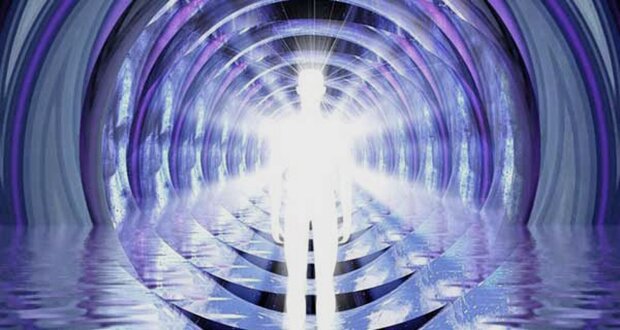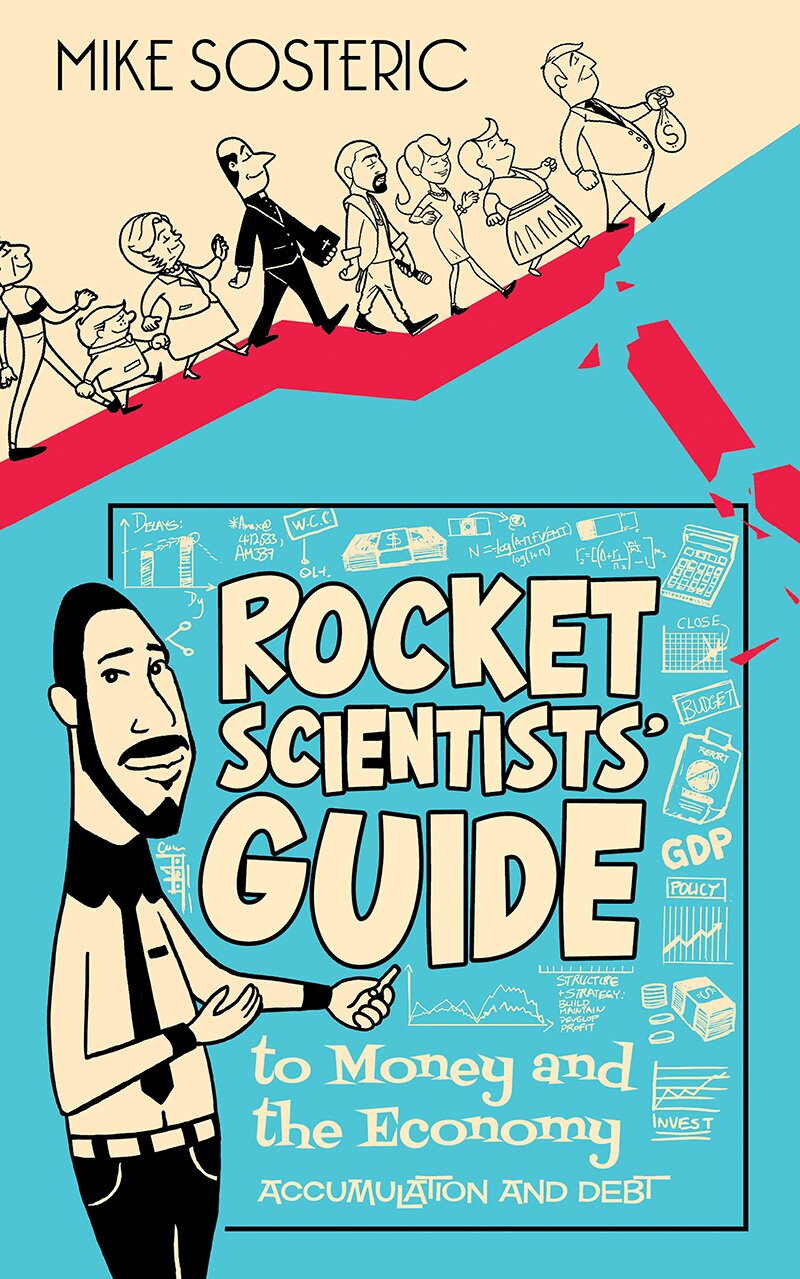Did you know, famous American psychologist Abraham Maslow thought that mystical experience was the authentic core of all religion and spirituality. Maslow thought that all religions, all spiritualities, and all spiritual sensibility was rooted in a mystic’s experience. Maslow said:
The very beginning, the intrinsic core, the essence, the universal nucleus of every known high religion… has been the private, lonely, personal illumination, revelation, or ecstasy of some acutely sensitive prophet or seer. The high religions call themselves revealed religions and each of them tends to rest its validity, its function, and its right to exist on the codification and the communication of this original mystic experience or revelation from the lonely prophet to the mass of human beings in general (Maslow, 2012, p. 339. emphasis added)
Interestingly enough, Maslow was not the only one to consider mystical/religious experience important. The famous American psychologist William James said, “all major religious and spiritual traditions are built on the mystical experience of specialized pattern-setters” (James, 1982, p. 6). Even Einstein believed in mystical experience. Not only did Einstein admit to having mystical experiences (Hermanns, 1930), he also believed that encouraging mystical experience was the single most important thing that artists and scientists could do for the world (Sosteric, 2016). I have to agree with Maslow and a few others. Mystical experience, whether that is expressed as “enlightenment” by the Buddha, the descent of Light/God (symbolized as a dove) by Christ, or the attainment of Moksha in Hinduism, is the root of all religion. Let me repeat, mystical experience is the root of all religion. From Catholicism to Buddhism, Theosophy to the New Age, it is all based on a mystical connection to what I would call the Fabric of Consciousness. But, what is mystical experience, how does one have one, and what happens when you do? These are fascinating questions that psychology, and more recently neuroscience, have been trying to answer. Sadly, Sociology, hasn’t even bothered to look. But it is high time we, and by “we” I mean sociologists, did take a closer look because mystical experience is not just a spiritual, psychological, or even neuroscientific area of concern, there is also content of deep sociological (and even socialist) interest (Sosteric, 2017, Forthcoming).
It is true, and not without precedent. Max Weber displayed an early interest in mystical experience (Robertson, 1975), it was a sociologist that uncovered Einstein’s spiritual views (Hermanns, 1930), and sociology has had at least one mystic (and now it has two) in the fold. Edward Carpenter, who was a Sociologist[1] and an important early figure in the emergence of socialism (Rowbotham, 1980, 2008), was a mystic. He was a left wing pacifist, an LGBT[2] activist way before his time and, it must be strongly emphasized, the person who coined the term cosmic consciousness! Did you know, it was a sociologist who coined the term Cosmic ConsciousnessCarpenter was not a stupid man or a shill of the ruling classes by any means, yet he was a mystic and he did write about God, consciousness, creation, and the capitalist social disease (E. Carpenter, 1889; Edward Carpenter, 1896; Edward. Carpenter, 1921). And note, the existence of a sociological mystic is not the only sociologically interesting thing here. Mystical experience itself can do weird and sociologically interesting things to people. It can even make members of the ruling classes turn their coats (Sosteric, Forthcoming); surely, that is something worth noting.
I’m not going to go into detail about a fascinating sociology of mysticism here (for that see Sosteric, 2017), I just want to tweak your interest and get you thinking. If you are a college or university student and you want to learn more, I teach an introductory course on the Sociology of Religion (Soci 287 at Athabasca University) that should be transferable to your home institution. If you are a sociological practitioner and your interest is tweaked, I suggest that there’s a lot to learn, and a lot to do. We need to explore definitions of mystical experience, research how prevalent it is in the general population, gauge the impact and outcome of mystical experience from a sociological, psychological, and even neurological perspective, look at the class, status, gender, and ethnic issues that swirl and abound around (Bourque, 1969; Jantzen, 1995; Sosteric, 2017), and otherwise apply our expertise to a fascinating and increasingly relevant phenomenon. Whether or not we believe in the authenticity of mystical experience or not, it is important we do. As Butler (2006) points out, sociologist’s general dismissal of human spirituality has left an intellectual and political vacuum that the reactionary right has been all to willing (and able) to fill out; and fill it out they have, in sometimes remarkably duplicitous and sophisticated ways (Sosteric, 2014). It is no hyperbole to suggest that the survival of the planet may depend on it (Sosteric, forthcoming).
And yes, I know, some of you reading may be challenged by this. I even think that some of you may have fallen of your chairs in surprise and/or disgust, but I’m serious. Despite our “separatist aspirations” (Sosteric, forthcoming), and despite our rejecting of religion as nothing more than elite machination (Berger, 1969: Marx, 1978), cussed stupidity (whose discussion is “beyond the pale” of self-respecting faculty parties (Berger, 1999: 4)), and implausible (Bruce, 2002) and dying superstitious nonsense (Berger, 1968, 1969; Bruce, 2002; Karel Dobbelaere, 1981; K Dobbelaere, 2002), I think it is time for more. I think that in our ill-considered rejection of spirituality and religion we have harmed our discipline and harmed the world. I would even suggest that sociology’s (and also socialism’s) refusal to take a serious look has led us to the precipice of global irrelevancy, or at least hampered our ability to meaningfully contribute. If you think this hyperbolic, consider this. Abraham Maslow made a career of studying mystical experience (what he called peak experiences in an effort to make it more palatable to a secular scientific audience). In his studies Maslow came to believe that everybody had mystical experiences. Maslow said:
In my first investigations … I thought some people had peak-experiences and others did not. But, as I gathered information and as I became more skillful in asking questions, I found that a higher and higher percentage of my subjects began to report peak-experiences…. I finally fell into the habit of expecting everyone to have peak-experiences and of being rather surprised if I ran across somebody who could report none at all. Because of this experience,
I finally began to use the word “non-peaker” to describe, not the person who is unable to have peak-experiences, but rather the person who is afraid of them, who suppresses them, who denies them, who turns away from them, or who “forgets” them (Maslow, 2012, pp. 340-341)
This is remarkable. Everybody has mystical experiences? Could it be true? I believe so (Sosteric, 2014a), but I’ll leave that up to you to decide for yourself. I will note in closing however that Einstein (Sosteric, 2016) and many other scientists (e.g., Wilber, 2001) don’t have a problem with the idea, or even the experience. They also don’t have any problem pointing out just how important it really is. Indeed, not only did Einstein think that authentic religous experience was an essential feature of human existence, he also thought that awakening religious feeling and keeping it alive and where the most important functions of art and science! It’s true. In his own words:
How can cosmic religious feeling be communicated from one person to another, if it can give rise to no definite notion of a God and no theology? In my view, it is the most important function of art and science to awaken this feeling and keep it alive in those who are receptive to it Albert Einstein[3]
So there you have it. Mysticism and religious experience are ubiquitous and, according to Einstein, the most important thing that, as a scientist and artist, you can be involved in. If you are a sociologist or a student of said discipline, worse, if you are a sociologist who actually makes a study of the “sociology of religion” (which for a long time has been little more than a study of churches) you have to ask yourself, if you ignore or are oblivious to such a ubiquitous and important aspect of human individual and social experience, how relevant can you actually really be?
Endnotes
[1] Routledge is currently “reviving” the important works of Edward Carpenter. See https://www.routledge.com/sociology/series/RREC
[2] Lesbian, gay, bisexual, and transgender.
[3] Albert Einstein, “Religion and Science,” New York Times November 9 1930.
References
Berger, P. (1968). A Bleak Outlook is Seen for Religion (Vol. April 25): The New York Times.
Berger, P. (1969). The Sacred Canopy: Elements of a Sociological Theory of Religion. New York: Anchor Books.
Bourque, L. B. (1969). Social Correlates of Transcendental Experiences. Sociological Analysis, 30(3), 151-163.
Bruce, S. (2002). God is Dead: Secularization in the West. Oxford: Blackwell.
Butler, J. (2006). Born Again: The Christian Right Globalized. New York: Pluto Press.
Carpenter, E. (1889). Civilization: Its Cause and Cure And Other Essays. New York: Charles Scribner’s Sons.
Carpenter, E. (1896). Towards Democracy. New York: Labour Press.
Carpenter, E. (1921). The Art of Creation: Essays on the Self and Its Powers. London: Georbe Allen & Unwin.
Dobbelaere, K. (1981). Trend Report: Secularization: A Multi-Dimensional Concept. Current Sociology, 29(2), 3-153.
Dobbelaere, K. (2002). Secularization: An Analysis at Three Levels. Frankfurt: Peter Lang.
James, W. (1982). The Varieties of Religious Experience: A Study of Human Nature. New York: Penguin.
Jantzen, G. M. (1995). Power, Gender, and Christian Mysticism. New York: Cambridge University Press.
Maslow, A. H. (2012). The “Core-Religious” or “Transcendent” Experience. In J. White (Ed.), The Highest State of Consciousness (pp. 339-350). New York: Doubleday.
Robertson, R. (1975). On the analysis of mysticism : pre-Weberian, Weberian and post-Weberian perspectives. SA. Sociological Analysis, 36(3), 241-266.
Rowbotham, S. (1980). In Search of Edward Carpenter. Radical America, 14(4).
Rowbotham, S. (2008). Edward Carpenter: A Life of Liberty and Love. New York: Verso.
Sosteric, M. (2017). The Sociology of Mysticism. ISA eSymposium for Sociology.
Sosteric, M. (2016). Einstein’s God. Socjourn
Sosteric, M. (2014). A Sociology of Tarot. Canadian Journal of Sociology, 39(3).
Sosteric, M. (2014a). Everyone Has a Mystical Experience. Sociology of Religion Blog.
Sosteric, M. (Forthcoming). Dangerous Memories: Slavery, Mysticism, and Transformation. Spirituality Studies.
Wilber, K. (2001). Quantum Questions: Mystical Writings of the World’s Great Physicists New York: Shambhala.
Mike Sosteric (Dr. S.) |
|
|
Just another loud mouth sociology professor, teaching sociology courses at Athabasca University. Check me out here at the Socjourn, over there at The Conversation and at academia.edu. |


Did you know that the awareness of mystical experience being at the very heart of religion has been known since time immemorial as the Perennial philosophy?
Of course, in the neuroscience, psychology, psychiatry, etc. the preferred term is “mystical experience.”
Have you been following these more recent studies of a mystical experience induced in self-confirmed atheists? I’m sure you can guess what happened to the atheists after this event. They no longer identified with atheism.
I don’t believe we have to worry about offending people when discussing these topics, because they’re now being demonstrated by the science. This is something that both theists and atheists are going to have to come to terms with.
It’s not going to arrive out of the mainstream church, it’s definitely not going to arrive out of any atheist community. Where this will ultimately be destigmitized is through the Universities and medical centers sponsoring this research on the “mystical experience.”
Excellent points Jimmy. I wrote a paper entitled “Dangerous Memories” which discusses a “turn to the left” that occurs when people (atheist or not) have mystical experience. You can have a read of it if you like.
Read Dangerous Memories